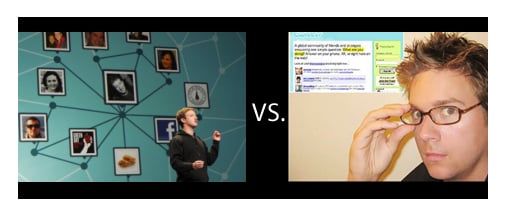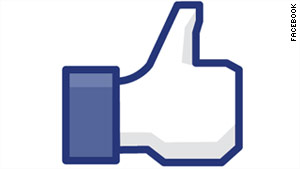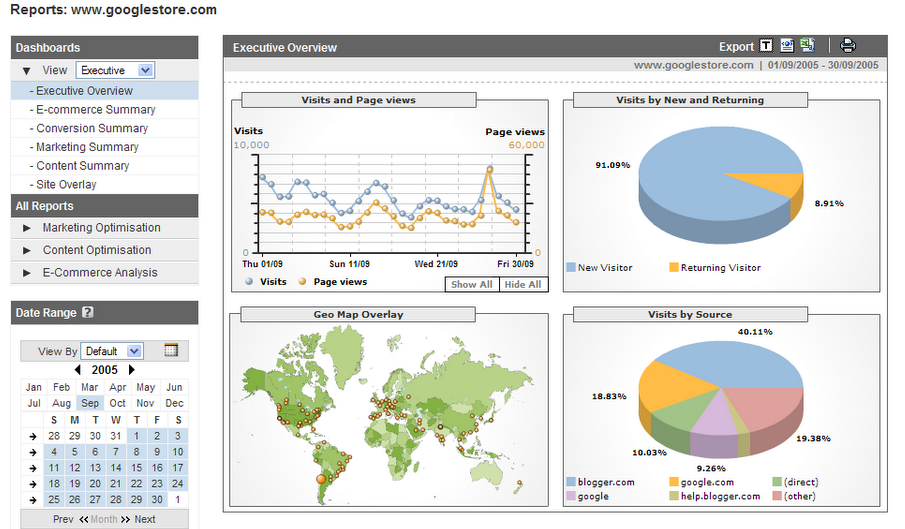 It’s no secret that Facebook and Twitter have been duking it out in hopes of being crowned King/Queen of social networks. While both networks have changed the way organizations do outreach and marketing, which social network is more valuable in generating click-throughs and increasing your website traffic?
It’s no secret that Facebook and Twitter have been duking it out in hopes of being crowned King/Queen of social networks. While both networks have changed the way organizations do outreach and marketing, which social network is more valuable in generating click-throughs and increasing your website traffic? 
For the past year I have noticed that website visitors prefer to use Tweet shares VS Facebook “Likes” and Facebook "Shares" when spreading content from nonprofit and technology websites and blogs. According to Twitter, there are about 155 million tweets sent per day and 25% of them contain links. But does having more Tweet shares generate higher click-throughs and web traffic? Not necessarily. According to a recent study by Mashable and another study by Eventbrite, a social commerce platform for ticketing and events, Facebook “Likes” and "Shares" are more valuable even though web visitors use them less frequently. Check out these stats where both companies used in-house analytics tools to measure results.
- According to Mashable, Twitter received about 0.38 clicks per tweet, while Facebook received 3.31 clicks per engagement. In other words, Facebook “likes” gets almost 8.7x more clicks than a tweet. “But engagement activity has a short life on Facebook, with less than 20% of likes occurring after 24 hours,” said Vadim Lavrusik of Mashable.
- Eventbrite users shared events on Facebook almost 4x more then they did on Twitter. Eventbrite says Facebook has greater reach with almost 600 million users and an emphasis on user’s inner circles of friends, family and colleagues. Editor's Update: Eventbrite has a big blue FB pop blue button saying "Share this link on Facebook." This is probably one of the main reasons why FB is shared 4x more then on Twitter.
- Over the past six months, a typical tweet made up about $.80 in ticket sales on Eventbrite as compared to Facebook, which was about $1.34.
- When Eventbrite users shared the event link on Facebook after they RSVP’d, ticket sales increased by about 20% per share compared to a pre-purchase share. “The findings apply broadly to all e-commerce businesses, because the foundations of e-commerce are shifting as the social graph becomes a meaningful influence in driving transactions,” said Tamara Mendelsohn, Eventbrite’s director of marketing and former senior analyst at Forrester Research.
Mendelsohn makes a good point and nonprofits should definitely test this more with their landing pages for action alerts, fundraising appeals and of course e-commerce and see if it produces similar results.
Another study by Yahoo Labs analyzed how Facebook users interacted with 45 of the biggest online media websites and found that every 10 Facebook “likes” generated about 1,000 page views for these news sites.
Why Are People Clicking Links More on Facebook Then Twitter?
People use Facebook and Twitter very differently because they were built with very different goals and tailored to different audiences and social environments.
Facebook was originally built as a social network for Harvard college students to stay connected. To expand  its business, they opened up the platform to other colleges and high schools and eventually to the general public. Facebook is now the most popular online space where individuals, nonprofits and companies keep in touch and share with family, colleagues, supporters, and consumers. Facebook is equivalent to peoples trusted, inner circle online.
its business, they opened up the platform to other colleges and high schools and eventually to the general public. Facebook is now the most popular online space where individuals, nonprofits and companies keep in touch and share with family, colleagues, supporters, and consumers. Facebook is equivalent to peoples trusted, inner circle online.
Twitter, on the other hand, was built to instantly connect friends and lots of strangers across the world to publically share what's most meaningful to them in 140 characters. The most popular item people share on Twitter is news related.
One of the most important distinctions between the two social networks is that a large chunk of people on Twitter don’t know each other very well - if at all. And that’s where the trust factor comes in and impacts click-through rates. People naturally trust links and information shared by their inner circles. Because of Twitter’s fast paced environment there is also a lot of clutter and noise to sift through. It’s easy to miss tweets flying across the screen by the millisecond.
Twitter and Facebook Stats You Should Know
- Users spend, on average, 12 minutes and 37 seconds per month on Twitter, according to Forbes. But on Facebook, users spend 700 billion minutes monthly, which is about 36 minutes per day every month.
- 50% of Facebook’s active users log on to Facebook in any given day. Note that active users are defined as someone who’s logged in at least once in the previous 30 days.
- Less than 25% of users generate 90% of the world’s tweets.
- 47% of those who have Twitter accounts are no longer active on the service.
Analyze Your Data and See What’s Driving Website Traffic
While the data from the studies is interesting and definitely worth paying attention to, it’s important that you look at your own organization’s analytics and do some testing.

- What percentage of your web traffic comes from social networks?
- Drill down and take a look at the click-through rates from Twitter vs. Facebook.
- How much time are these users from Twitter and Facebook spending on your website? Are they taking some sort of an action such as signing up for your list, downloading a study, signing a petition, donating money?
- Test placement of FB “Like” and Twitter shares on your action pages vs. your “Tell A Friend” pages. What kind of differences are you seeing in terms of share rates and actions taken?



COMMENTS